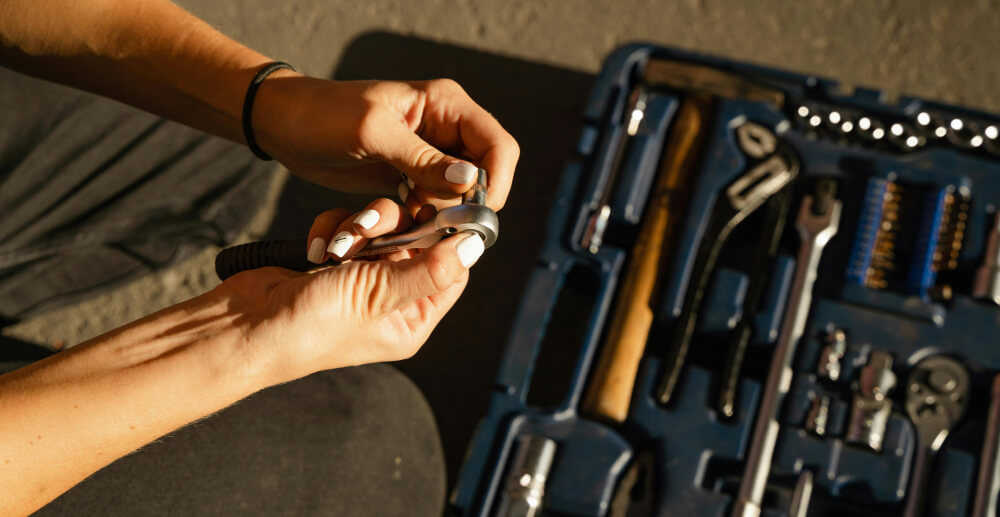An interview with the creator of Sobriety: A Graphic Novel
Daniel D. Maurer, 45, of Saint Paul, Minnesota might have been serving as an ordained progressive Lutheran pastor in western North Dakota, but his career in “drinking and taking pills,” he says, was more important to him than that job, his own health, and his family. As a self-described secret user and drinker, what began as a way to cope with everyday stress and depression became a chemical obsession that his first inpatient program couldn’t seem to remedy. One third and final try and six years later, he’s since published a series of graphic novels through an imprint of the recovery center that finally helped him heal.
> Why did you decide to get help?
The intervention of the law, my family, and the good counselors that worked with me probably functioned just as much as my Higher Power than anything.
At first, I didn’t want sobriety. A life without alcohol or pills—mostly opioids and benzos—didn’t seem worth living. In 2010, daily withdrawals became common and I sought inpatient treatment again in Williston, North Dakota. That time, I wanted it, but it didn’t take either because I thought I could sneak a drink once a week. My addiction snowballed and eventually led to my arrest, first for a DUI, then for felony trespassing while I had been in a blackout. It was exactly the sort of bottom I needed to address the serious nature of my illness.
> What did it take for it to “take”?
I attended the Hazelden in Center City in Minnesota on March 1 of 2011, and met a counselor who helped me address my issues honestly, but also with compassion and empathy. I stayed there for three months. After that, I lived in a sober house in St. Paul for an additional seven months. My wife began attending Al-Anon meetings and I eventually embraced a Twelve Step program of recovery.
> What ultimately proved to be most effective for your successful entry into continuous recovery?Although I believe many modalities exist for continuous recovery, the fellowship and spiritual foundation within the Twelve Steps has been the most effective for me, personally. Today, I attend these meetings about twice per week, but sometimes miss a week here and there. When I first began this journey, I attended more frequently . . . maybe four to six times per week. But, life happens! One thing I want people to know is that I didn’t get sober just to make my life all about recovery, recovery, recovery. I believe recovery gives us the tools to deal with life on life’s terms and actually live it.
> What have been the most difficult “life on life’s terms” issue you’ve dealt with?
I still to this day occasionally encounter using dreams. To me, they are simple reminders that my brain has been permanently altered by my abuse of mind-altering chemicals. Beyond simple urges or triggers, dealing with life isn’t always easy. A friend I know believes in the Cherokee Harmony Ethic, which is a form of mindfulness and actively “welcoming in” the struggles life inevitably brings. Shitty circumstances are never fun when they come up, but recognizing that I can deal with them—one minute at a time if I have to—makes them all the more bearable, and also ultimately makes me a more empathetic, patient, and caring human being.
> What’s the very best thing about sober life?
Never worrying how much I’ve had to drink or whether I’m able to drive, function at work, or rise to the occasion that life calls.
> How did recovery influence your career path?
When I was arrested and I was standing in the basement jail cell in Williams County North Dakota, I wanted to die. I knew I didn’t want to be a pastor anymore. I didn’t want that life. I’d come to that conclusion years before all of this, but I never could address it—I was too afraid. Later, in a dream, I saw myself creating a graphic novel on the process of recovery. After a lengthy process, Sobriety: A Graphic Novel was published by Hazelden Publishing.
It began my career as a freelance writer, author, speaker, and small business owner. This fall, I will be publishing my fourth book looking at the psychological concept of resilience and how people bounce back after stress or trauma, and its relationship to “spiritual assets” like courage, gratitude, or honesty. The creative life was something I had always sought, but only found fertile ground after I had been through the difficulties addiction afforded me.
> Have you come up against any specific challenges that you feel are unique to you as a man in recovery?
For one, men define their identities very strongly with what they do in their careers. If they feel that a purpose or meaning behind that work is lacking, it’s very easy for them to lose sight of the fact that some work is just work, the stuff you need to simply get through to accomplish a larger goal.
The other challenge for men, I believe, is sexuality. My use of drugs and alcohol often was tied to it. Since I used alone, that led to pornography and obsessing over my image, and when I was married, it led to some relationship difficulties. Jennifer Matesa, a fellow writer and Hazelden author has done some profound work on this subject. It’s definitely a tough road for guys, and a deeper subject than space allows in this interview. One action I take to address this challenge is to attend a men’s only twelve-step meeting, because we can discuss this issue at length.
> If you could create your own program slogan, what would it be?
Your story is not yet finished.
> What are your top three recovery tools?
- Whatever your program for recovery is—show up. I swear 90% of living in long-term recovery is simply doing what you say you’re going to do.
- “Play the tape forward” when dealing with urges—recognize real consequences for what they are.
- Proudly and publicly claim your status as a person in recovery. While this might be anathema to some practitioners of strict anonymity, I have found that standing up as a person who once lived that life, but no longer does, feels great for me and is also a strong testimony to the power of personal transformation.
> Do you feel that the entertainment industry has perpetuated any misconceptions about recovery that you’d like to clear up?
Oh yeah! You’re a rock star for asking this. Can we please stop with the tired—and completely unrealistic—motif of the hard-drinkin’, womanizing detective who has fallen off the wagon, and then the next day picks up the badge and gun to save the day? The way addiction is portrayed in movies, television, and even in books is so far off the target. I mean, who goes on a coke binge with liquor chasers for years without any consequences? No one. It’s not reality.




